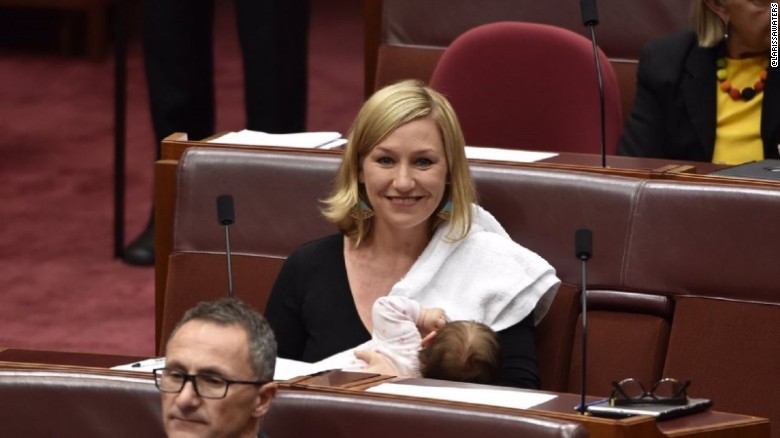Queensland senator Larissa Waters has become the first person to breastfeed a baby in Australian parliament.
An Australian senator made history this week after becoming the first person to breastfeed a baby in the country’s parliament.
Larissa Waters – co-deputy of Australia’s Green party – returned from maternity leave on Tuesday and fed her two-month-old daughter during a vote which took place the same day.
"So proud that my daughter Alia is the first baby to be breastfed in the federal Parliament!” Waters tweeted soon after. "We need more #women & parents in Parli."
Until last year, children were banned from the chambers and breastfeeding lawmakers were given a proxy vote. Waters was among the lead campaigners who pushed for change.
"If we want more young women in parliament, we must make the rules more family friendly to allow new mothers and new fathers to balance their parliamentary and parental duties,” Walters said.
In Canada, every province and territory has a human rights code which protects women from discrimination based on gender – however, only Ontario and B.C. specifically detail the rights of breastfeeding mothers which include time, access and accommodation in the workplace.
Further, the Canadian Human Rights Commission says employers have a responsibility to accommodate employees who want to breastfeed or express milk in the workplace or during working hours.
According to the organization, these accommodations include providing a suitable clean place, providing longer or extra breaks for the purpose of breast-feeding or expressing milk, allowing for the extension of maternity leave or allowing for alternative work arrangements.
While the Queensland senator has caused a stir – facing both praise and criticism from around the world – she’s not the first politician to make a public stand in support of breastfeeding.
In 2016, Spanish MP Carolina Bescansa was both criticised and commended for taking her baby into parliament and breastfeeding him. In the same year, a politician in Iceland breastfed her one-month-old child while speaking at the national parliament.

